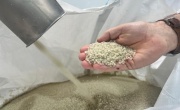European Commission publishes further guidance on revised Waste Framework Directive
The European Commission (EC) has published further guidance on the revised Waste Framework Directive (rWFD).
The rWFD has been a source of contention for many in the UK recycling industry, as arguments flared over the vague nature of the directive’s stance regarding the permissible use of co-mingled collection.
Defra and the Welsh Government have also been the subject of a Judicial Review after members of the Campaign for Real Recycling (CRR) claimed that their permission of co-mingled collection systems could “permanently undermine the environmental and financial benefits of recycling”.
Thus, the CRR argued, the government’s interpretation of the rWFD was “contrary to both the wording and spirit of the rWFD and therefore not a transposition of it”. The Judicial Review was intended to begin in December 2011, but was pushed back to 13 June. Since then, Defra and the Welsh Government have been granted a six-week extension in order to finalise their position by mid July.
The EC’s document ‘Guidelines on the interpretation of key provisions of Directive 2008/98/EC on waste’ was released last week and highlighted that though the publication ‘intended to help national authorities and economic operators interpret this Directive’, it reflected the ‘views of Directorate-General Environment of the European Commission and as such is not legally binding’.
Most crucially, in Section 4.3.3 of the guidelines, it specifies that the final Waste Framework Directive Guidance to member states is equivocal in its mandate for either co-mingling or separate collection, but states that co-mingling is permissible only when either member states or local authorities have demonstrated that separate collection of metal, paper, plastic and glass is not technically, economically and environmentally practicable (TEEP).
Section 4.3.4 in the guidance says that though ‘the WFD does not include an explicit statement covering the co-mingled collection of different recyclable waste streams (as one co-mingled stream)… it should be borne in mind that in accordance with Article 11(1), paragraph 3 WFD, and subject to the conditions set out in this provision, there is an obligation to have in place by 2015 separate collection for paper, metal, plastic and glass’. The guidelines go on to specify that ‘considering that the aim of separate collection is high-quality recycling, the introduction of a separate collection system is not necessary if the aim of high-quality recycling can be achieved just as well with a form of co-mingled collection’.
It continues: ‘So, co-mingled collection of more than one single waste streams may be accepted as meeting the requirement for separate collection, but the benchmark of ‘high-quality recycling’ of separately collected single waste streams has to be examined; if subsequent separation can achieve high-quality recycling similar to that achieved with separate collection, then co-mingling would be in line with Article 11 WFD and the principles of the waste hierarchy.’ The section later specifies that this excludes co-mingled collection of bio-waste and other ‘wet’ waste with dry fractions such as paper.
Potentially, this means local authorities running co-mingling services after 2015 that have failed to show separate collection of dry recyclables are not TEEP in their area will potentially fall foul of the rWFD.
Andy Moore, Coordinator for the Campaign for Real Recycling, said: "We are pleased that the final guidance notes have now been published by the European Commission, though note they are not substantively different to the draft published over a year ago. We now look forward to sight of the revised Waste Regulations in light of these and feel it is appropriate to reserve comment until this point."
The guidelines have been welcomed from those in the environmental and recycling industry who have invested in co-mingling recycling techniques and collection services, including Matthew Farrow, the ESA’s Director of Policy: “Our members operate a range of different systems for collecting recyclable materials from their clients, be they local authorities or businesses, designed to meet the specific local requirements, and ESA does not believe there should be a ‘one size fits all’ collection method. We therefore welcome the commission’s guidance which confirms that co-mingled collection of dry recyclables can be an acceptable method of meeting the directive’s requirements to promote high quality recycling.”
The newly published guidance and the Waste Framework Directive can be found on the EC’s website.



